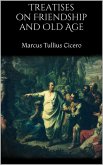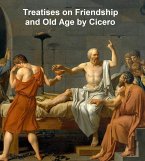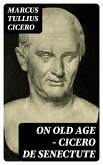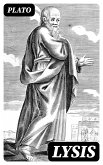Marcus Tullius Cicero's 'Treatises on Friendship and Old Age' is a compelling exploration of the nature of relationships and the passage of time. Written in his signature eloquent prose, Cicero delves into the philosophical and moral implications of true friendship and the virtues of old age. Drawing from historical examples and personal experiences, this classic work offers timeless insights into the complexities of human connections and the wisdom that comes with age. Cicero's work stands as a testament to his mastery of rhetoric and profound understanding of human nature, making it an essential read for those interested in classical philosophy and literature. As one of the most renowned Roman orators and statesmen, Marcus Tullius Cicero's personal experiences and observations undoubtedly shaped his perspective on friendship and old age. His deep knowledge of Greek and Roman philosophy also influenced the themes and arguments present in this book, showcasing his intellectual prowess and scholarly background. Cicero's reputation as a prolific writer and thinker further cements the credibility and value of his treatises on these topics. I highly recommend 'Treatises on Friendship and Old Age' to readers who appreciate philosophical reflections on timeless themes. Cicero's profound insights and persuasive arguments make this book a captivating and thought-provoking read that will resonate with audiences seeking a deeper understanding of human relationships and the natural progression of life.
Dieser Download kann aus rechtlichen Gründen nur mit Rechnungsadresse in A, B, BG, CY, CZ, D, DK, EW, E, FIN, F, GR, H, IRL, I, LT, L, LR, M, NL, PL, P, R, S, SLO, SK ausgeliefert werden.









